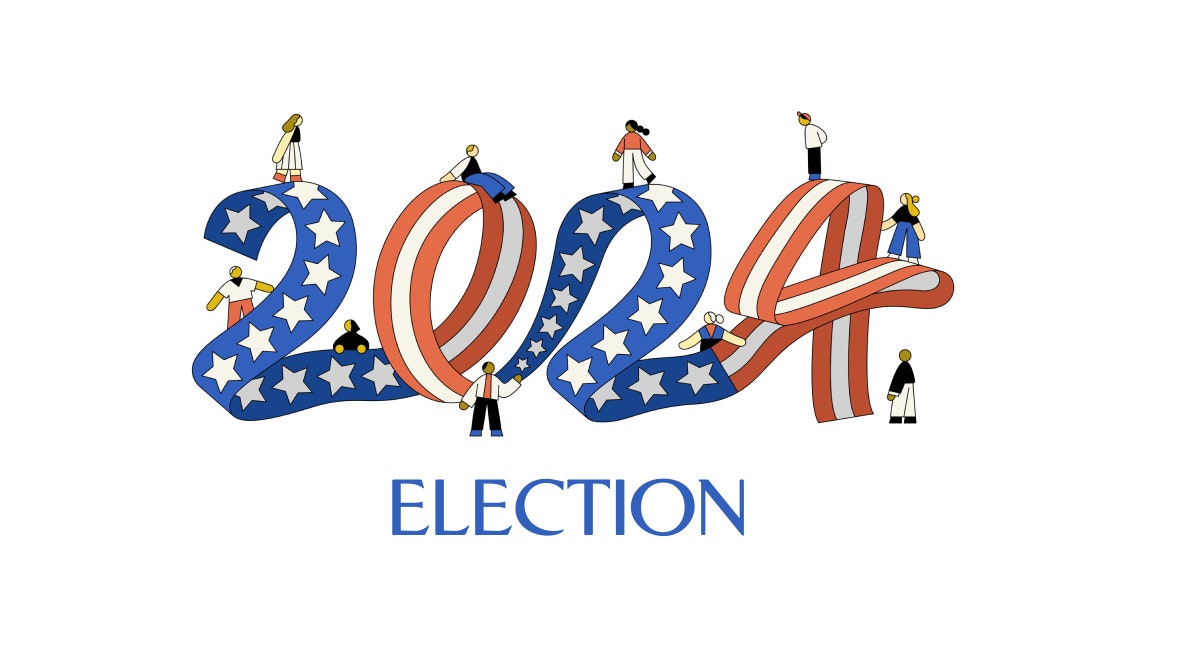Photograph by Paola Chapdelaine / The Washington Post / Getty
Campaigning in North Carolina and Pennsylvania on Monday, Donald Trump tried to take advantage of the hurricane-affected employment figures for September, which showed a nationwide gain of just twelve thousand jobs. Kamala Harris, meanwhile, has been closing out her campaign bid by telling voters that her first priority as President will be to “bring down the cost of living.” To this end, she has promised to expand tax credits for parents with children, enact a ban on price gouging, and, most recently, broaden Medicare to help cover the cost of elder care.
The duelling messages reflect a maxim still widely accepted in political circles: outside of wartime and pandemics, Presidential elections often come down to the economic record of the incumbent party. What has complicated things this year is that many voters have a much darker opinion of the economy than many experts do. Representing the views of the latter group, The Economist recently published a special report entitled “The American economy has left other rich economies in the dust.” Since the beginning of 2020, just before the pandemic began, U.S. G.D.P. has grown, on an inflation-adjusted basis, by about ten per cent. That’s “three times the average for the rest of the G7 countries,” the report pointed out. Other indicators, including Trump’s beloved stock market, are equally positive. On Monday, the Dow closed at 41,794.602: since the day before the 2020 election, it has risen by close to fifty per cent. During the same period, house prices have risen by about forty per cent, and the economy has created more than sixteen million jobs—a record only slightly blemished by Friday’s jobs report.
No wonder Joe Biden has been boasting about America having the strongest economy in “the whole damn world.” But it’s also easy to see why Harris, since replacing Biden on the Democratic ticket, has spent less time ballyhooing his economic record than she has reassuring voters that she understands their concerns about rising prices. In the latest YouGov poll carried out for the same Economist editors who published that glowing article about U.S. economic strength, fewer than a third of respondents said that the current state of the economy was excellent or good; two-thirds said that it was just fair or poor. At the end of October, the Commerce Department reported that the Federal Reserve’s favored measure of inflation fell to 2.1 per cent that month, the lowest level since 2021. But in the YouGov poll, ninety-six per cent of respondents said that “inflation/prices” was still an important issue to them.
Economists and political scientists will be debating for years about why the great price shock of 2021-22 has had such an enduring impact on Americans’ attitude, despite other positive news and the fact that, for many people, wages are now higher in inflation-adjusted terms than they were before the pandemic began. The Harris-Walz campaign didn’t have the luxury of engaging in this discussion. It had to meet the voters where they were—hence the new policy initiatives designed to ameliorate the impact of rising prices.
Recent polling data suggests that the Democratic campaign has had some success in its endeavor. For example, in a Times/Siena College national poll in September, when respondents were asked which candidate they trusted to handle the economy, they preferred Trump to Harris by thirteen per cent; in the final pre-election survey, his lead on that question had narrowed to seven per cent. To be sure, almost all the polls still show Trump running ahead on economic issues, but narrowing the gap was one of the major aims of the Harris-Walz campaign.
If Harris manages to pull out a victory despite such downbeat economic sentiment, it will be a major achievement. Elsewhere, the post-pandemic, post-price-spike political environment has proved a killer for incumbent parties. In the first round of French parliamentary elections earlier this year, Emmanuel Macron saw his center-right Renaissance Party come a distant third. In a British general election in July, the Conservative Party suffered the worst defeat, in terms of the vote share, in its history. In Germany recently, the ruling center-left S.P.D. narrowly fended off the far-right AfD Party in a state election in Brandenburg; nationally, the S.P.D. has seen its approval ratings hit record lows. Going into Election Day, Harris was basically tied in the polls. That, in itself, was some sort of victory.

